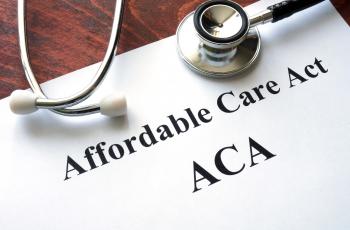PREVENT DIABETES Act: New Legislation to Expand Telehealth in Diabetes Prevention Programs
The PREVENT DIABETES Act was introduced to expand access to virtual diabetes prevention programs for Medicare beneficiaries with prediabetes. These remote prevention programs could help support medically underserved populations with disproportionately high rates of diabetes.
On December 3rd, Representatives Tom Rice (R-SC), Tom Reed (R-NY), and Diana DeGette (D-CO), introduced the PREVENT DIABETES Act H.R. 8861,a bill that would increase access to the Medicare Diabetes Prevention Program by expanding coverage to include fully virtual programs.
In 2010, the Centers for Disease Control (CDC) launched the Medicare Diabetes Prevention Program (MDPP). The program is an evidence-based behavior change program to help prevent type 2 diabetes in at-risk Medicare beneficiaries, especially in rural and medically underserved populations. Rural regions have fewer healthcare providers and higher rates of diabetes compared to urban areas. According to the Health Resources and Services Administration (HRSA), as of 2018, “Diabetes prevalence is 15 to 17 percent higher in rural areas than in urban areas, and 62 percent of nonmetropolitan counties do not have diabetes self-management programs,” leaving these at-risk populations with few options to improve their health. Racial and ethnic minority groups, especially Black, Hispanic, and Indigenous populations, also have high rates of diabetes. The Medicare-aged adults in these populations could significantly benefit from virtual access to diabetes prevention programs.
In the past, the MDPP has been available only through in-person group classes. During the COVID-19 pandemic, the Center for Medicare & Medicaid Services (CMS) has allowed the existing in-person programs to operate virtually, but CMS still does not cover fully remote MDPP programs. The PREVENT DIABETES Act would significantly increase access to the MDPP by permanently supporting telehealth versions of the program in order to reach more people. In addition, participation in the MDPP decreases the chances of developing type 2 diabetes by 58%. Incorporating virtual curriculum will likely bring these benefits to more at-risk individuals and could have a sustained positive impact on type 2 diabetes prevention.
The pandemic has shown the benefits of telehealth – which is a broad descriptor for digital therapeutics, on-line coaching programs, and virtual provider visits. Telehealth, in general, has proven to significantly reduce HbA1c levels in individuals with type 2 diabetes, and its accelerated adoption has allowed racial and ethnic minorities, who are already at a higher risk for severe COVID complications, to receive accessible and efficient care. Not only do all forms of telehealth improve patient access, but it also opens up doors for constant personal support, improved compliance and engagement, and healthier lifestyle management for all.
The PREVENT DIABETES Act, was already introduced to the Senate in September, and while Congress works to address the pandemic and related economic challenges, this bill is unlikely to pass for some time. However, at diatribe Change, we believe that telehealth can increase access to healthcare for those who need it most. This bill is a promising step forward for diabetes prevention and healthcare access.
Join diaTribe Change in demanding permanent telehealth expansion to ensure the health and safety of people with diabetes.


